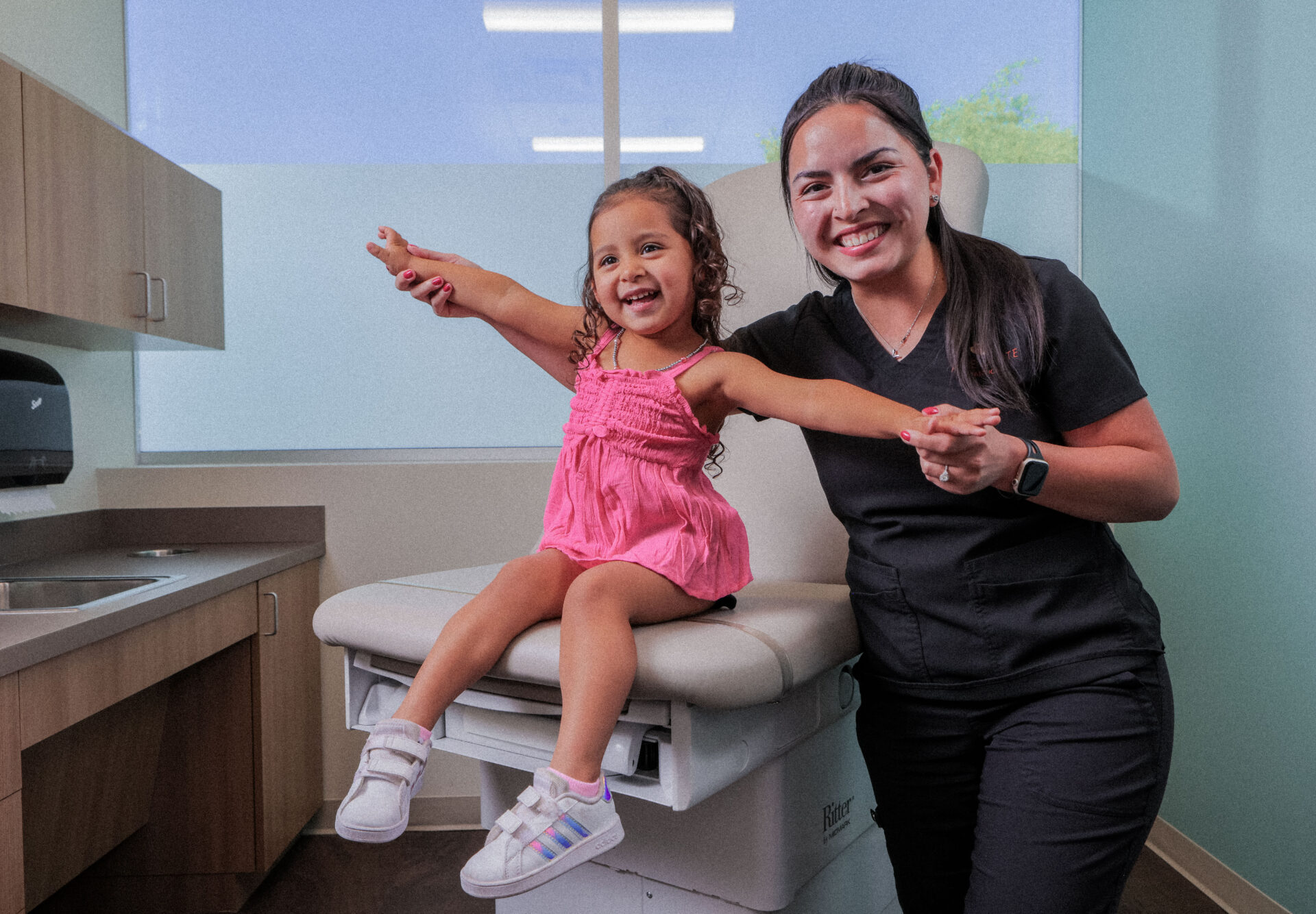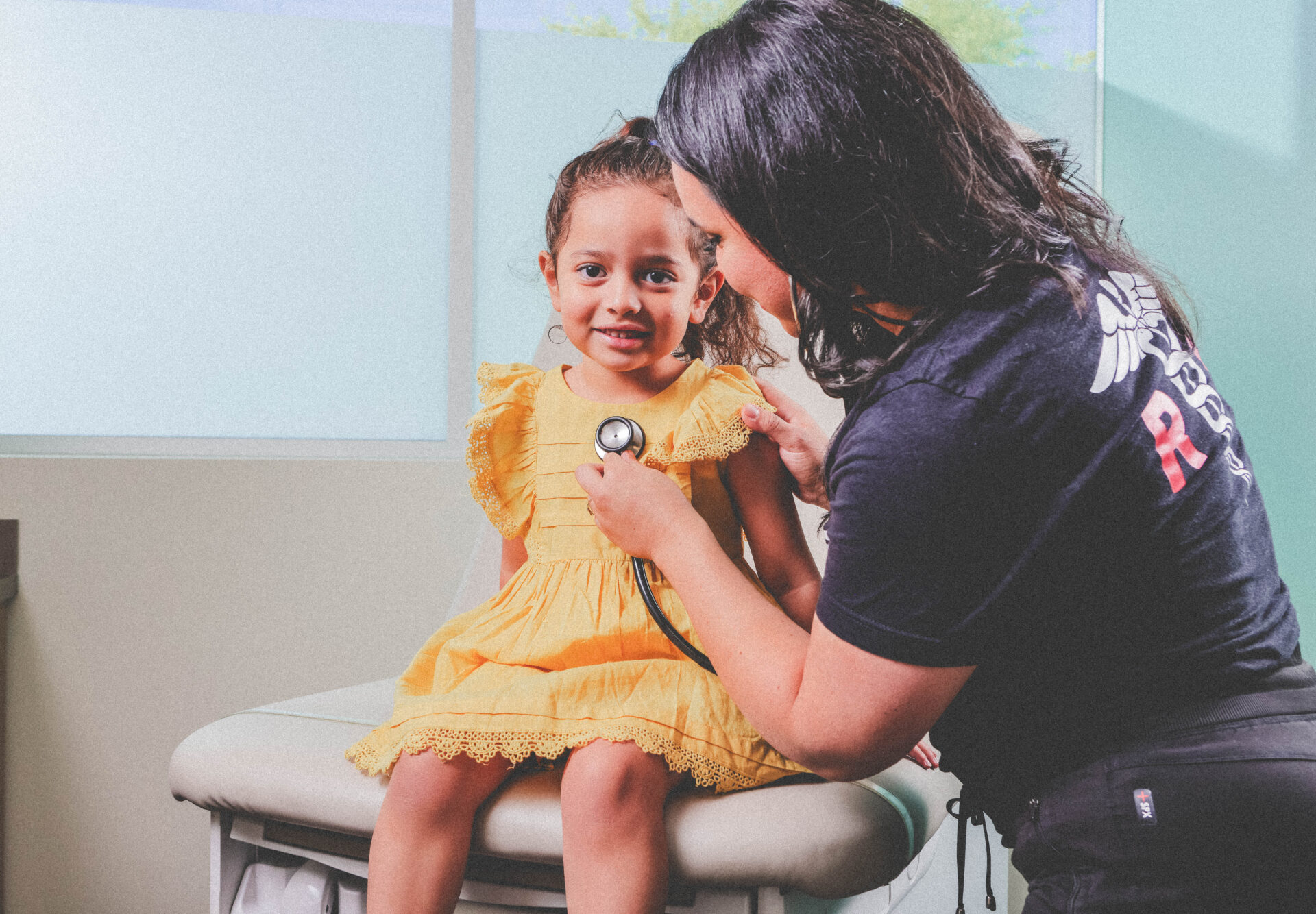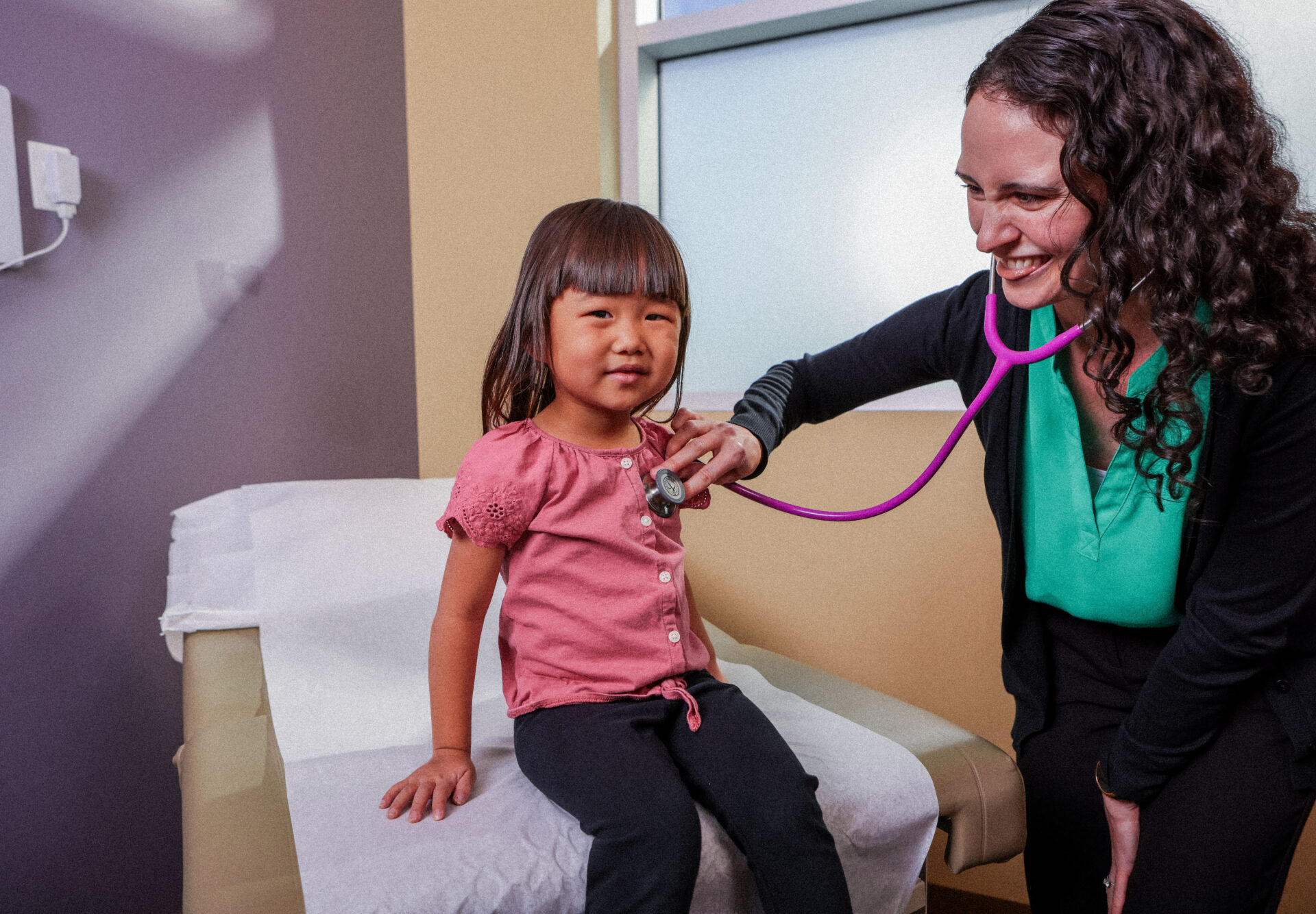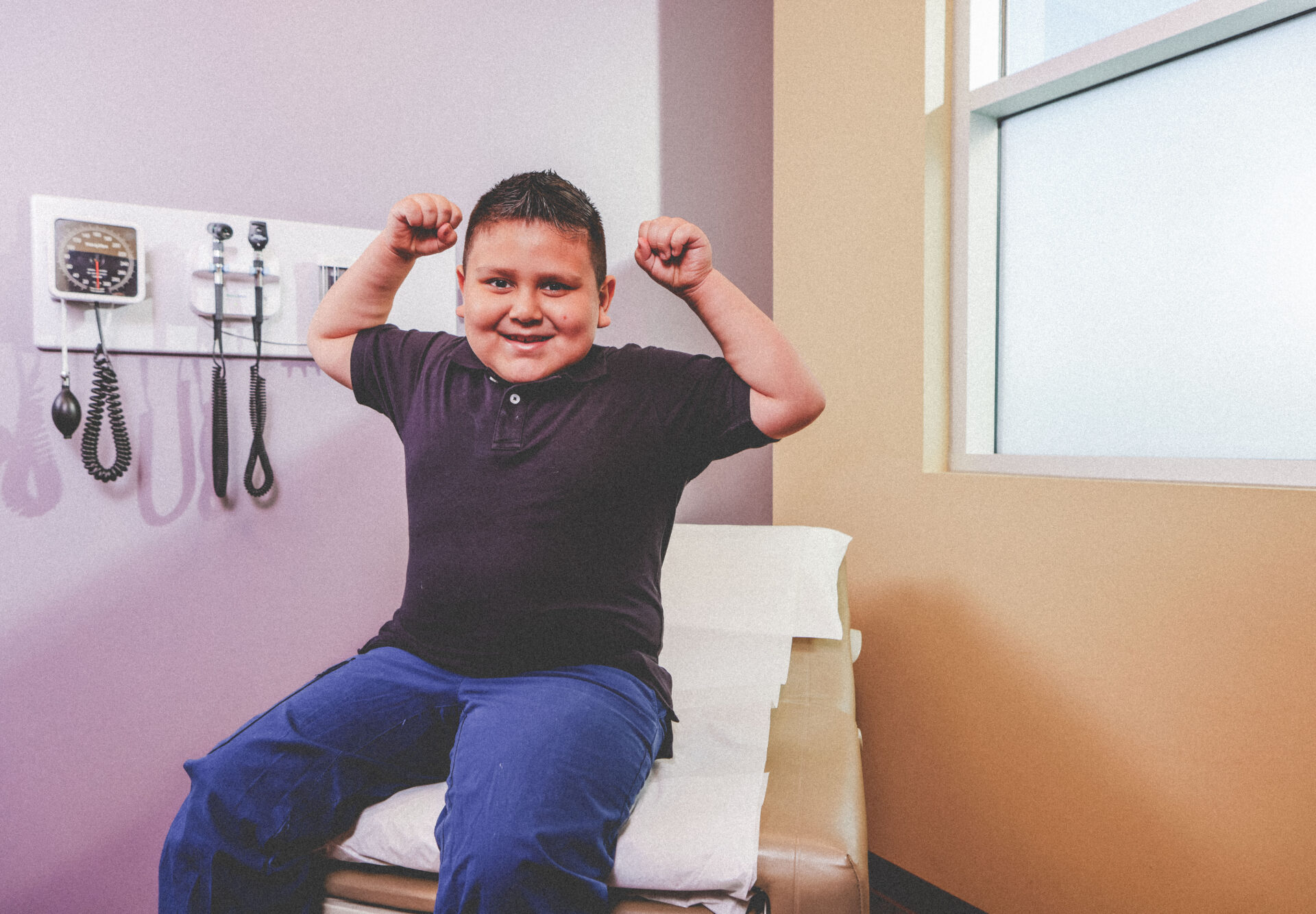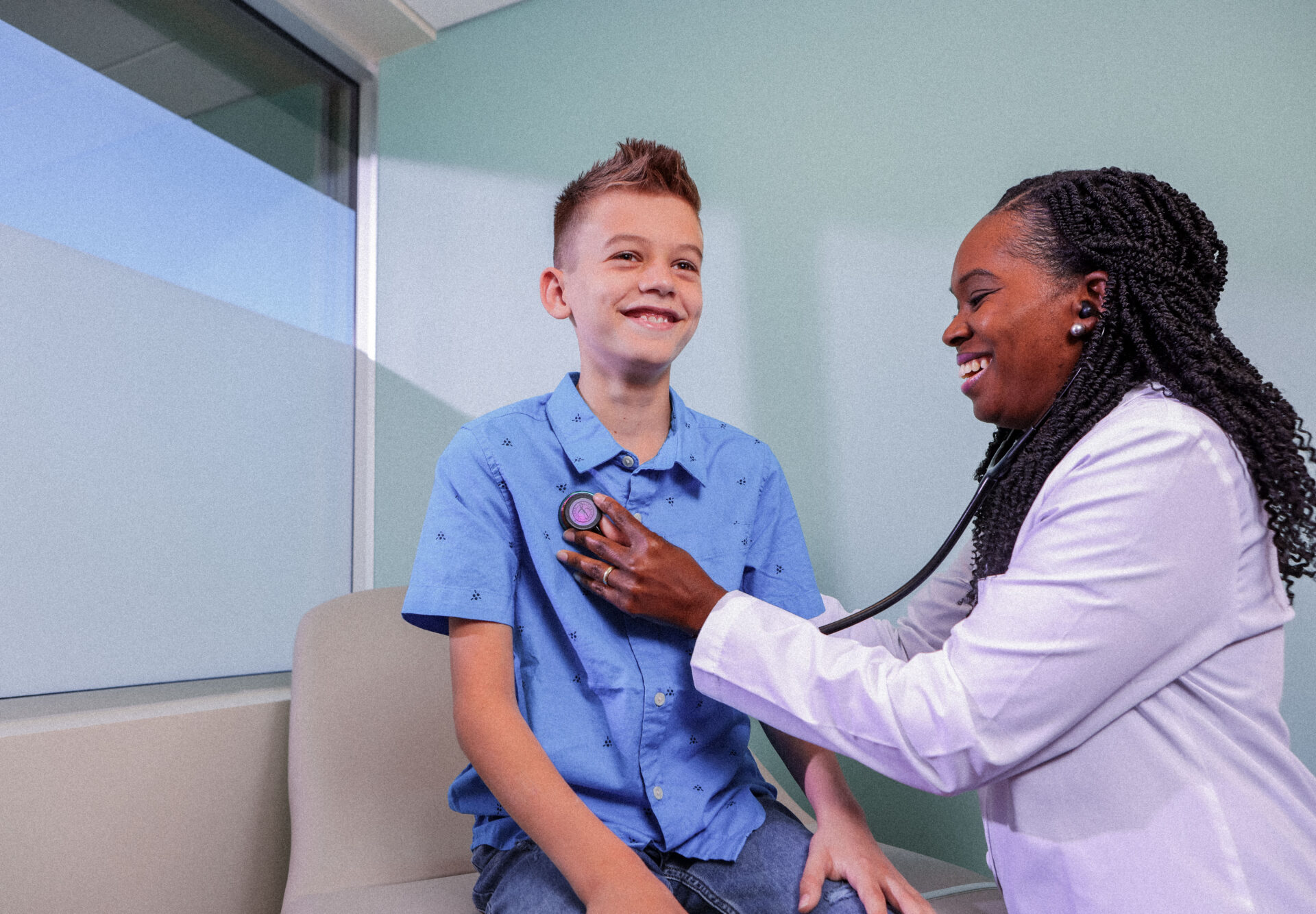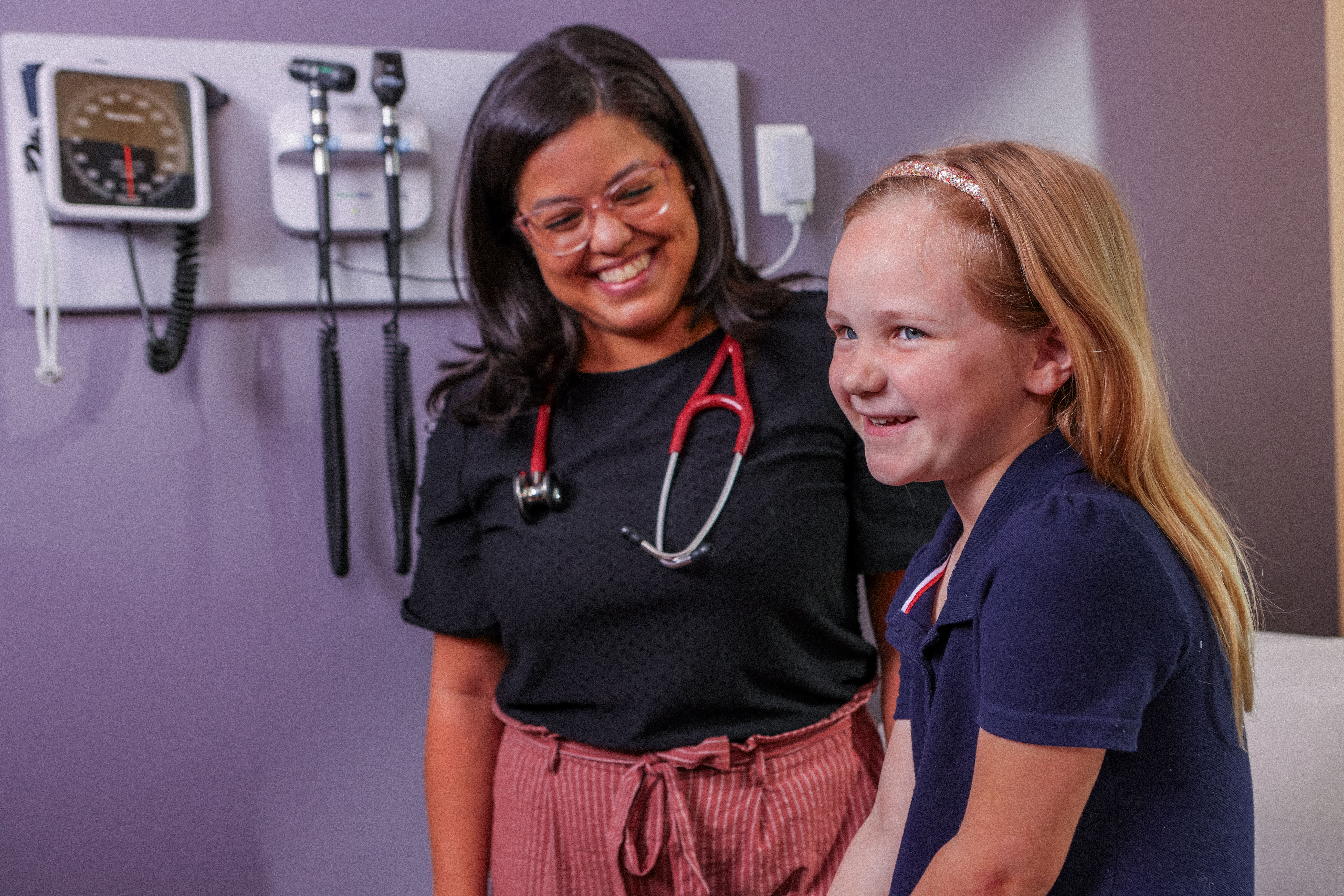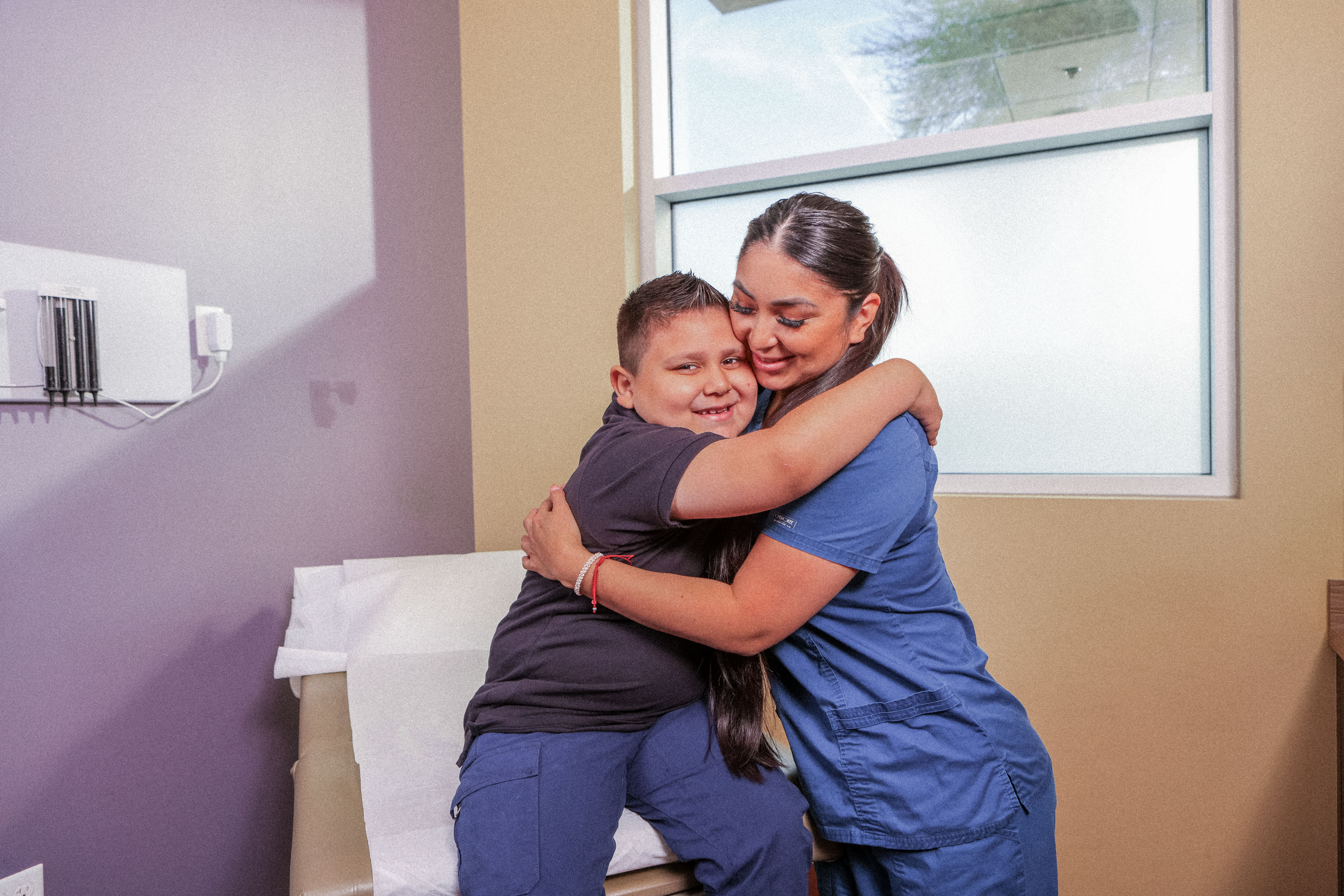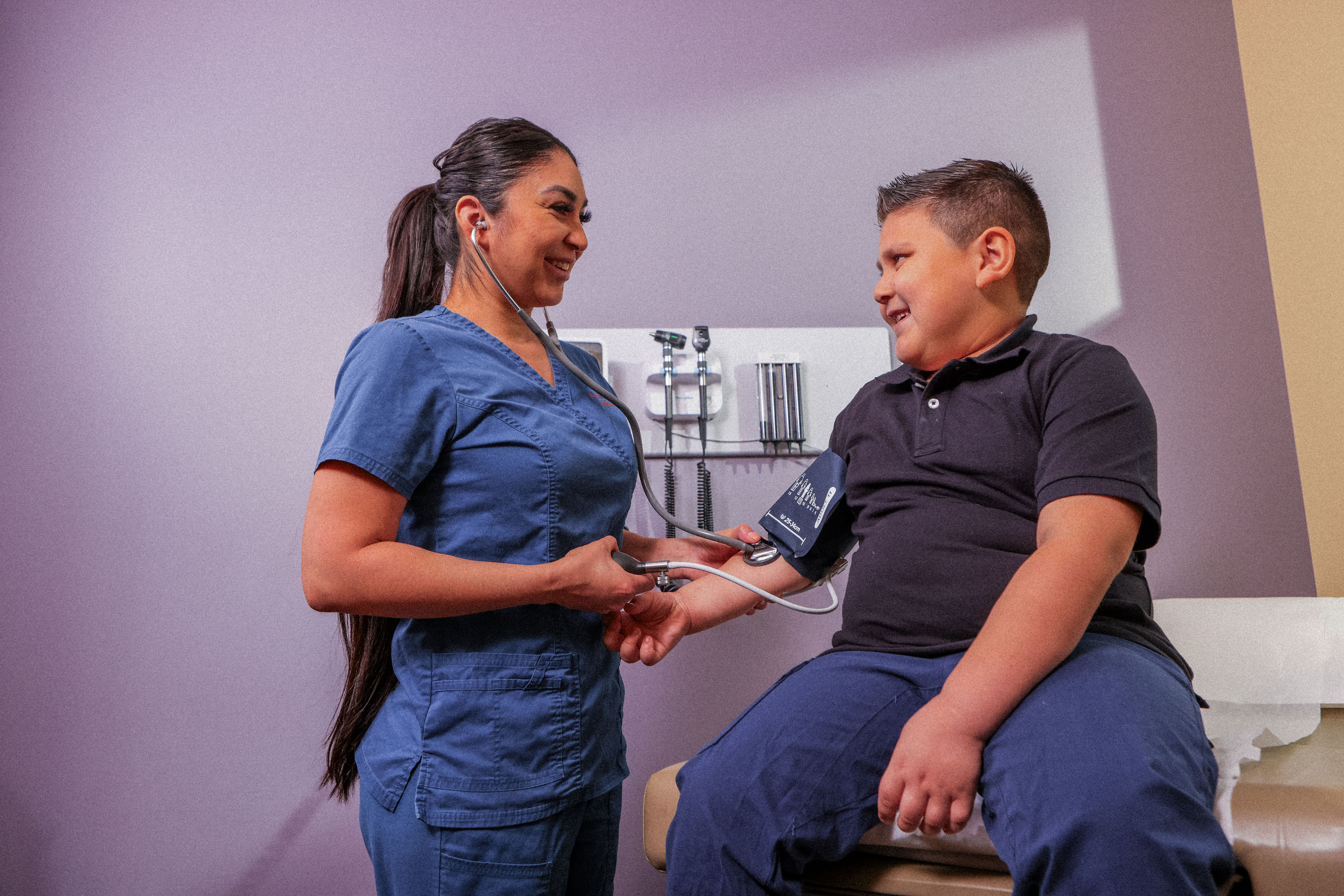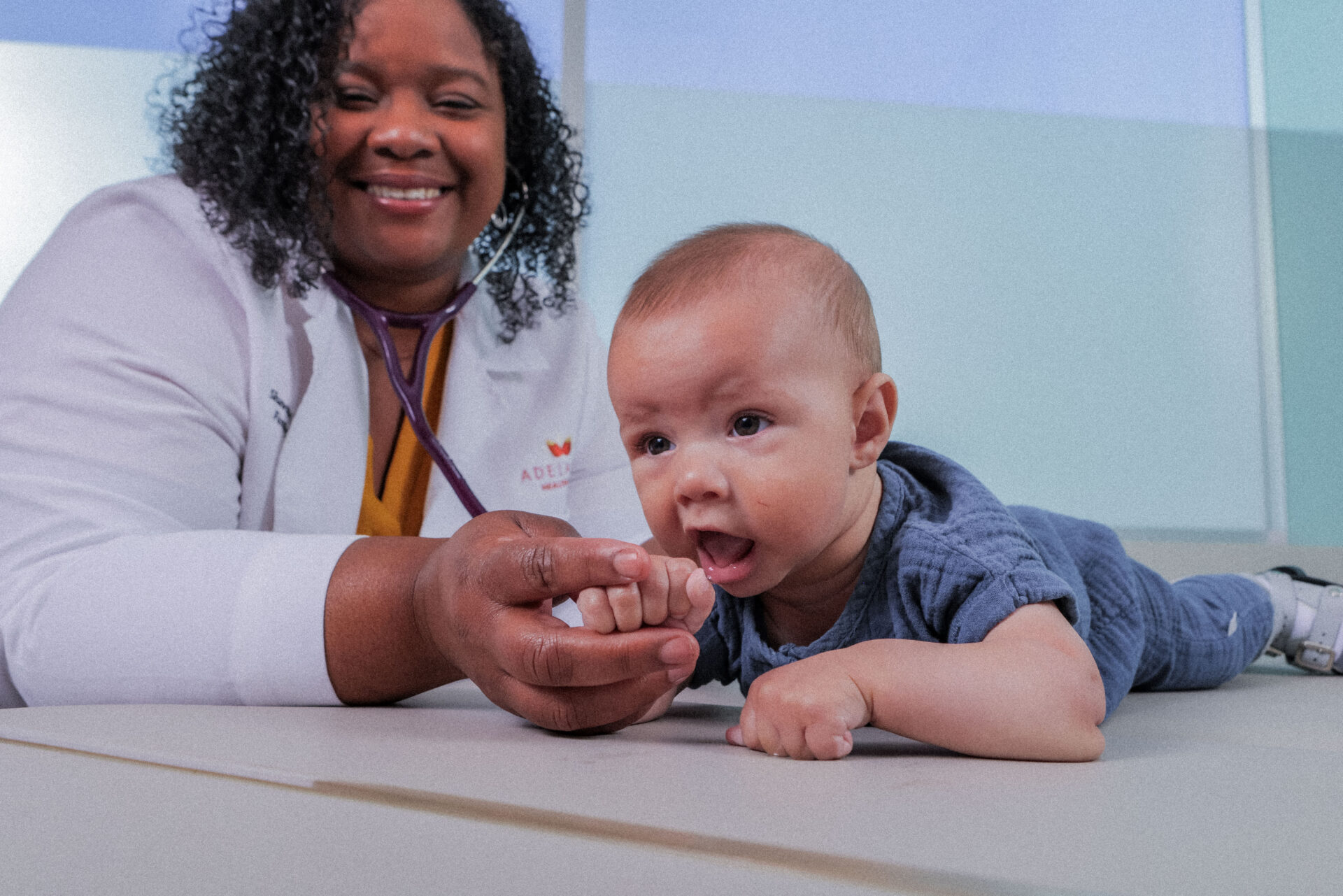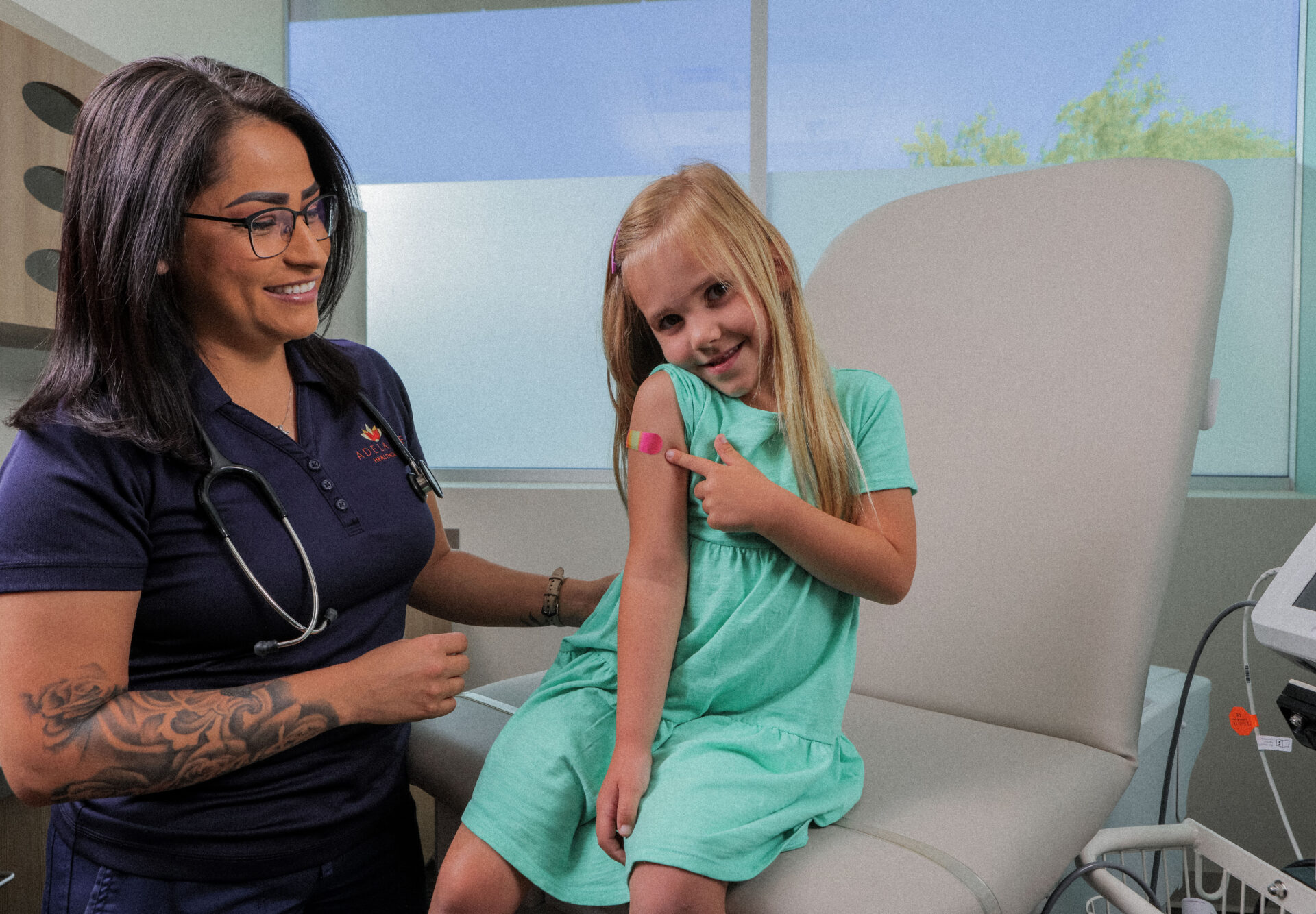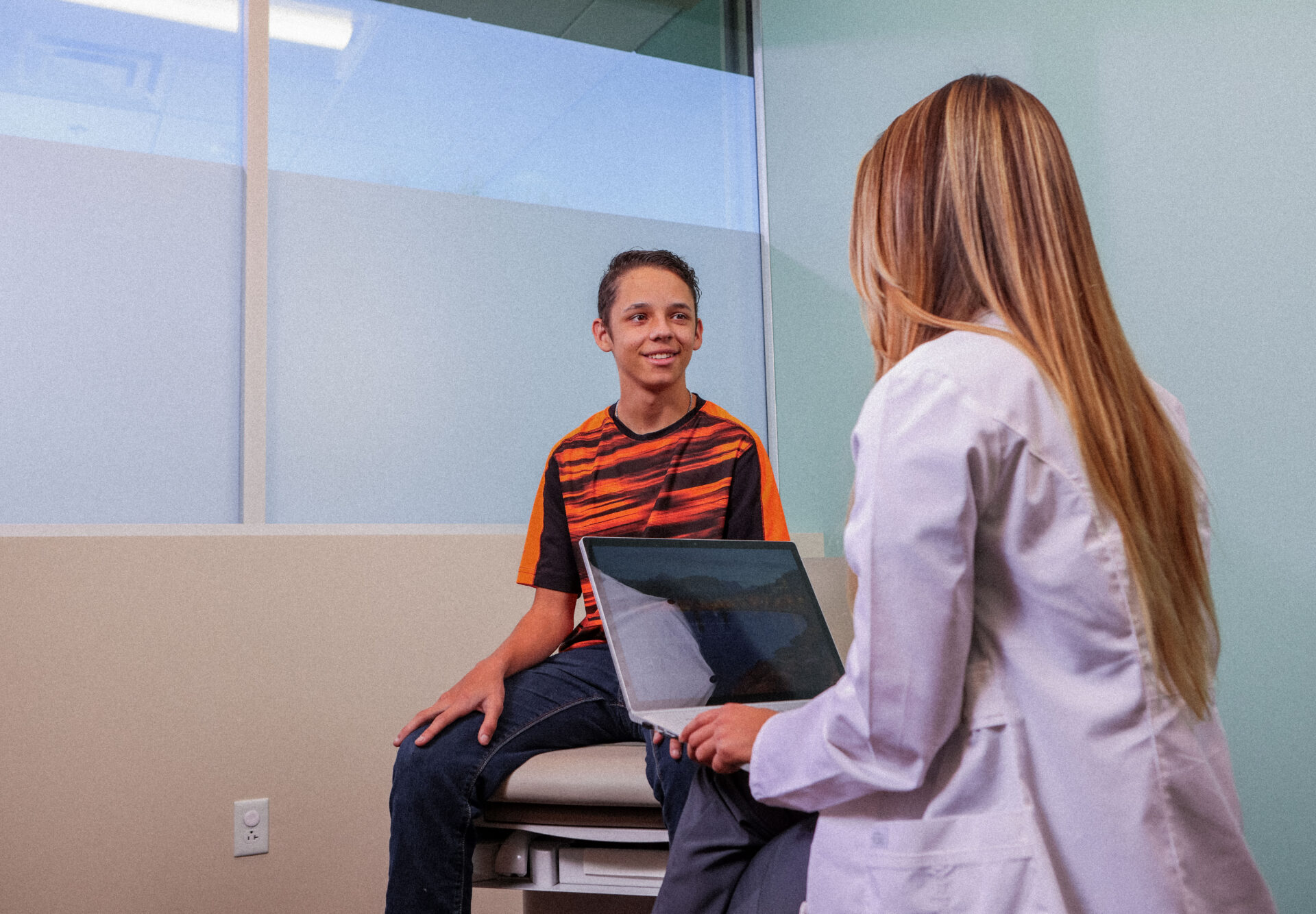
The Best Gift You Can Give Them is Their Health
Give Yourself the Gift of a Healthy Child🥰
At Adelante Healthcare, we believe the greatest gift a parent can receive is knowing their child is healthy, and the greatest gift a child can have is a lifetime of good health. That’s why we’re here to support you in keeping your little ones strong and protected with essential well-child checkups and immunizations.
As your child grows, regular checkups are key to ensuring they stay on track with their health milestones. Immunizations are a crucial part of protecting them from preventable diseases and giving them the best start in life.
Our compassionate team of pediatric experts is not only highly experienced but also works in perfect harmony to provide your children with the best medical care. Our Board-Certified pediatricians located in Buckeye, Goodyear, Mesa, Peoria, Surprise and West Phoenix are dedicated to providing care that gives parents peace of mind. From the first newborn visit to annual well-child checkups, we’re here every step of the way.
Book Your Child’s Well-Child Check
Our pediatric services include:
- Well-child checkups to monitor growth and development
- Immunizations to protect against preventable, life-threatening illnesses
- Newborn care
- Same-day sick appointments
- Chronic condition management (such as asthma or allergies)
- Breastfeeding support and education
- Women, Infant, and Children (WIC) program assistance
- & More
A healthy child is the best gift. Schedule a well-child checkup or vaccination today and give your child the foundation for a lifetime of health and wellness!
Health at Every Age 👶🏽👦🏽👨🏽
As your child grows, their health needs evolve, making regular checkups and staying up to date on immunizations essential for keeping them on track.
Did you know? The recommended vaccination schedule is carefully designed to ensure your child is protected when they’re most likely to be exposed to diseases and when the vaccine will be most effective for them. Staying on schedule is key to their continued health and well-being.
Along with looking at their growth and reviewing their vaccinations, here are a few things that we look at for every age group:

Babies
Ages 0-1
It’s a new life! Parenthood may not have an instruction manual, but together we will look at how to help your baby grow and thrive. These early appointments will focus on important shots to prevent common diseases, how your baby is sleeping and eating and even important safety tips.
Recommended visits:
3-5 days old, 1 month, 2 months, 4 months, 6 months, 9 months, 12 months
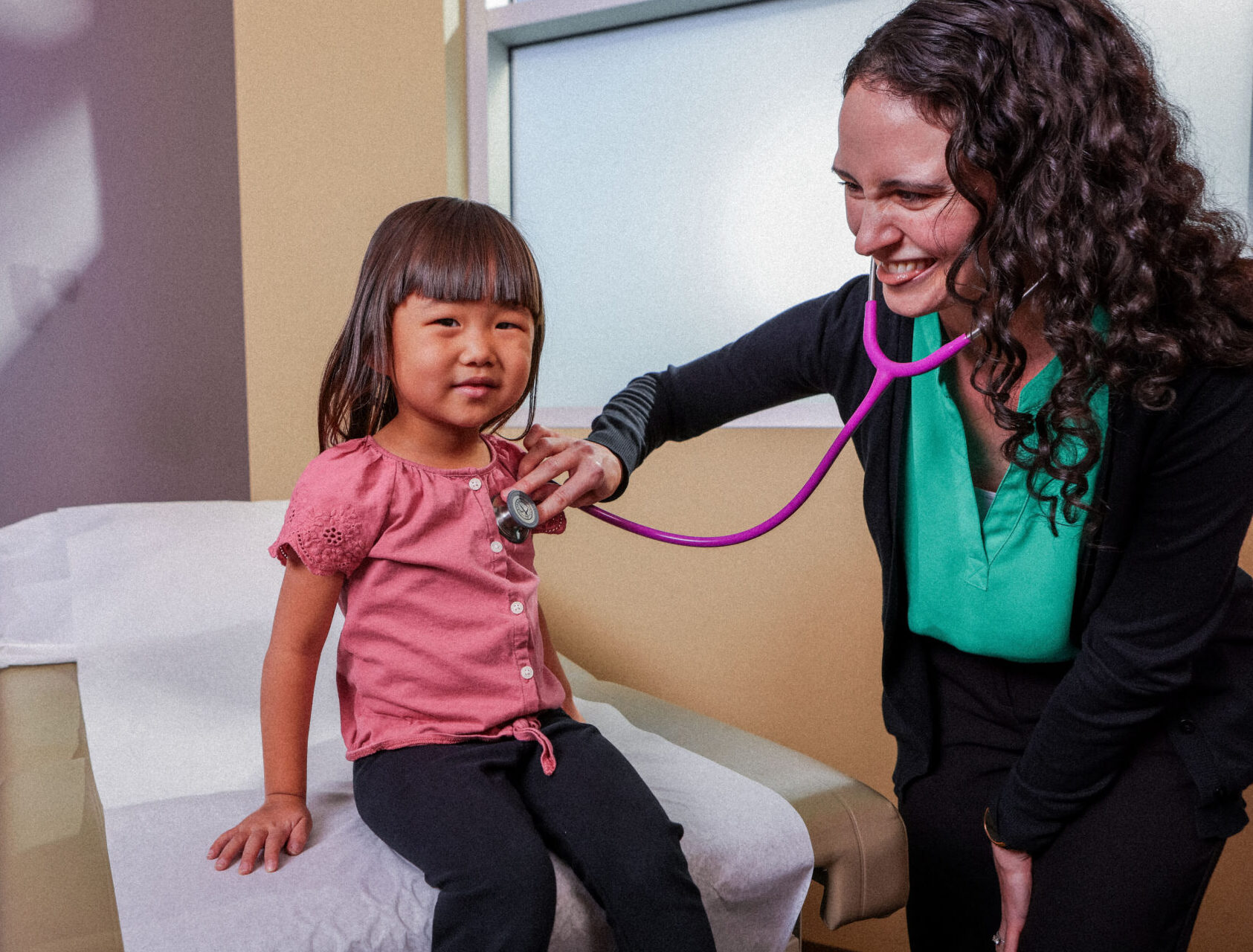
Toddlers & Preschoolers
Ages 1-4
A lot has changed in the first year, and now your baby is really on the move. These appointments will focus on development, language skills and other milestones. As the child gets closer to school, the doctor will work with you on making sure the child has healthy eating habits.
Recommended visits:
15 months, 18 months, 24 months, 30 months, 3 years, 4 years
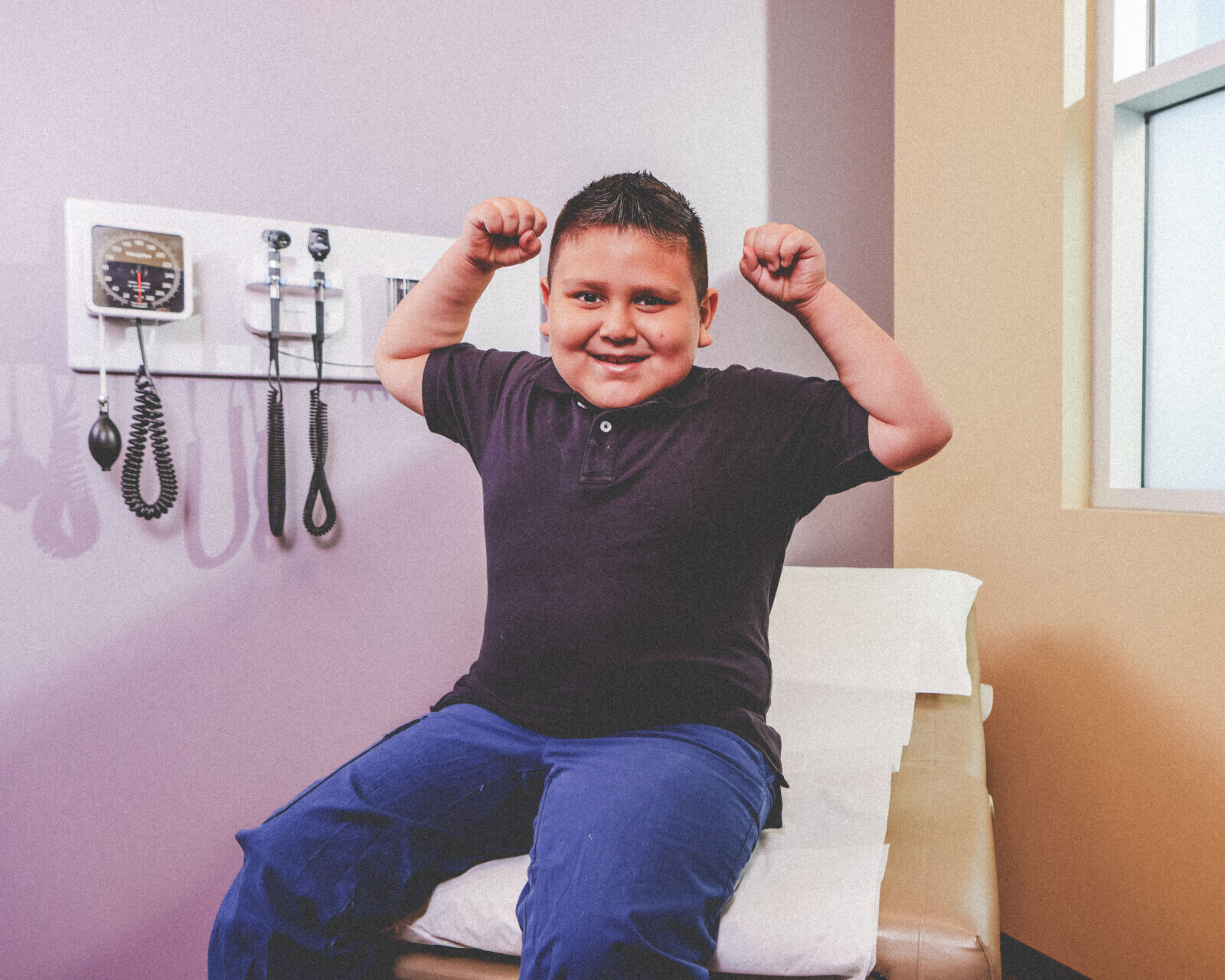
Elementary-age Kids
Ages 5-10
With the start of school, the focus turns to preventing illness, including the proper vaccinations. Your doctor will also do annual screenings related to hearing, sight and warning signs of other health problems.
Recommended visits:
Yearly
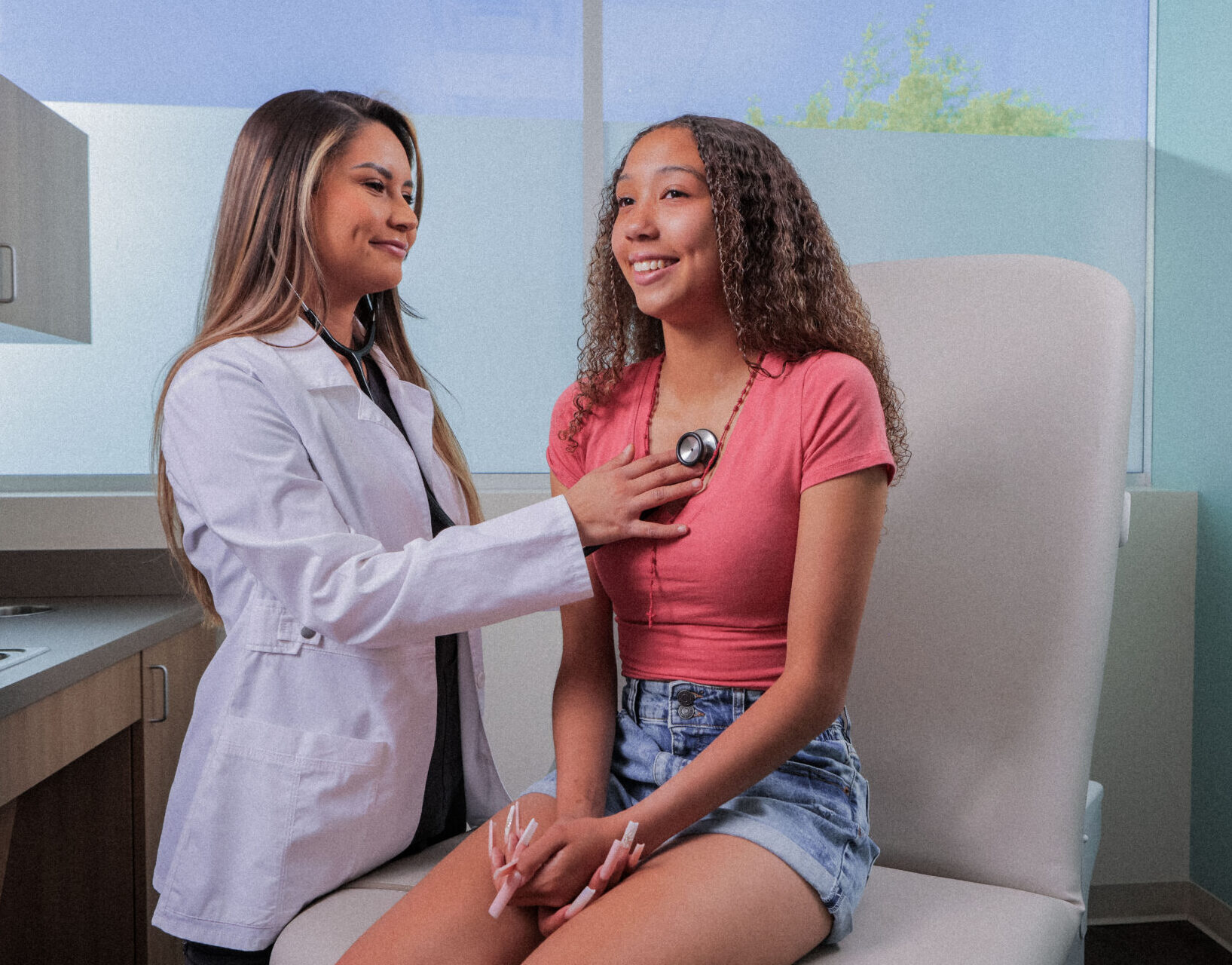
Preteens & Teens
Ages 11-18
This is an age of great change. So their visits should change as well, with more one-on-one discussion with the doctor about their health and what it takes to take care of their bodies. It also lets the doctor assess and lets the child ask questions about more difficult topics such as mental helath, drugs or sex. The doctor can be a trusted source of support.
Recommended visits:
Yearly
Meet Our Board-Certified Pediatricians
Our pediatricians at Adelante Healthcare are not just experts in your child’s health—they are your partners in ensuring their well-being. From answering your questions to providing educational resources, they work closely with you to create the healthiest path for your child. Meet some of our dedicated pediatricians who are here to support your family every step of the way.

Don’t Forget to Take Care of You
Parenting can be challenging, and we know how much you give to your children every day. But to be there for them, it’s just as important to take care of yourself. At Adelante Healthcare, we’re here to support you in staying healthy, so you can show up at your best for your kids.
At Adelante Healthcare, we offer a wide range of services to help parents stay healthy while caring for their families. Our adult care services include primary care, women’s health, behavioral health, eligibility, nutrition counseling, and more—all designed to support your overall well-being.
Whether you need routine checkups, mental health support, or guidance on healthy eating, our integrated team-based approach is here to provide personalized care that fits your needs.
Frequently Asked Questions About Vaccines
Understanding how vaccines work and why they’re important can help you make informed decisions for your child’s health. We’ve gathered answers to common questions about safety, timing, and what to expect after each vaccine, so you can feel confident in keeping your child on track with their vaccinations.
- Why should I vaccinate my child?
-
It is always better to prevent a disease than to treat one after it occurs.
- Vaccination is a safe, highly effective, and easy way to help keep your family healthy.
- The recommended vaccination schedule balances when a child is likely to be exposed to a disease and when a vaccine will be most effective.
- Vaccines are tested to ensure they can be given safely and effectively at the recommended ages.
Source: CDC.gov
- Are vaccines safe?
-
Before a new vaccine is ever given to people, extensive lab testing is done. Once testing in people begins, it can still take years before clinical studies are complete and the vaccine is licensed.
After a vaccine is licensed, the Food and Drug Administration (FDA), CDC, National Institutes of Health (NIH), and other federal agencies continue routine monitoring and investigate any potential safety concerns.
Source: CDC.gov
- What about side effects?
-
Vaccines, like medicine, can have some side effects. But most people who get vaccinated have only mild side effects or none at all. The most common side effects include fever, tiredness, body aches, and redness, swelling, and tenderness where the shot was given. Mild reactions usually go away on their own within a few days. Serious, long-lasting side effects are extremely rare. We know they are rare because the CDC tracks and investigates reports of serious side effects.
If you have questions or concerns about a vaccine, talk with your pediatrician.
Source: CDC.gov
- What are the ingredients in vaccines?
-
Today’s vaccines use only the ingredients they need to be as safe and effective as possible. A vaccine could include any of these kinds of ingredients:
- Adjuvants such as aluminum salts help boost the body’s response to a vaccination. (Also found in antacids, antiperspirants, etc.)
- Stabilizers such as sugars or gelatin help keep a vaccine effective after it is manufactured. (Naturally present in the body and found in foods such as Jell-O®.)
- Formaldehyde helps prevent bacterial contamination during manufacturing. Formaldehyde is naturally present in the body at levels higher than vaccines. (Also found in the environment, preservatives, and household products.)
- Thimerosal is a preservative used in the vaccine manufacturing process. It is no longer used to make any vaccine except multi-dose vials of the flu vaccine. Single dose vials of the flu vaccine are available as an alternative.
Source: CDC.gov
- What are the risks and benefits of vaccines?
-
Vaccines can prevent infectious diseases that once killed or harmed many infants, children, and adults. Without vaccines, your child is at risk for getting seriously ill and suffering pain, disability, and even death from diseases like measles and whooping cough.
The main risks associated with getting vaccines are side effects, which are almost always mild (redness and swelling at the injection site) and go away within a few days. Serious side effects after vaccination, such as a severe allergic reaction, are very rare and doctors and clinic staff are trained to deal with them.
The disease-prevention benefits of getting vaccines are much greater than the possible side effects for almost all children. The only exceptions to this are cases in which a child has a serious chronic medical condition like cancer or a disease that weakens the immune system or has had a severe allergic reaction to a previous vaccine dose.
Source: CDC.gov
- Is there a link between autism and vaccines?
-
No. Scientific studies and reviews continue to show no relationship between vaccines and autism. Please see the CDC vaccine safety website for more information on autism and vaccines.
Source: CDC.gov
- Can vaccines overload my baby's immune system?
-
Vaccines do not overload the immune system. Every day, a healthy baby’s immune system successfully fights off thousands of germs. Antigens are parts of germs that cause the body’s immune system to go to work to build antibodies, which fight off diseases.
The antigens in vaccines come from the germs themselves, but the germs are weakened or killed so they cannot cause serious illness. Even if babies receive several vaccinations in one day, vaccines contain only a tiny fraction of the antigens they encounter every day in their environment. Vaccines give your child the antibodies they need to fight off serious vaccine-preventable diseases.
Source: CDC.gov
- Why do vaccines start so early?
-
The recommended schedule protects infants and children by providing protection early in life, before they come into contact with life-threatening diseases. Children receive vaccinations early because they are susceptible to diseases at a young age.
- Why can't I delay some vaccines if I'm planning to get them all eventually?
-
Young children have the highest risk of having a serious case of disease that could cause hospitalization or death. Delaying or spreading out vaccine doses leaves your child unprotected during the time when they need vaccine protection the most. For example, diseases such as Hib or pneumococcus almost always occur in the first 2 years of a baby’s life. And some diseases, like hepatitis B and whooping cough (pertussis), are more serious when babies get them.
- Can I wait to vaccinate my baby since they aren't in childcare or school yet?
-
No, even young children who are cared for at home can be exposed to vaccine preventable diseases, so it’s important for them to get all their vaccines at the recommended ages. Children can catch these illnesses from any number of people or places, including from parents, brothers or sisters, visitors to their home, on playgrounds or even at the grocery store. Regardless of whether your baby is cared for outside the home, your baby comes in contact with people throughout the day, some of whom may have a vaccine-preventable disease.
Many of these diseases can be especially dangerous to young children, so it is safest to vaccinate your child at the recommended ages. Children under age 5 are especially susceptible to diseases because their immune systems have not built up the necessary defenses to fight infection.
- Why are multiple doses sometimes needed for vaccines?
-
Getting every recommended dose of each vaccine provides your child with the best protection possible. Depending on the vaccine, your child will need more than one dose to build high enough immunity to help prevent disease or to boost immunity that fades over time.
Your child may also receive more than one dose to make sure they are protected if they did not get immunity from a first dose, or to protect them against germs that change over time, like flu. Every dose is important because each protects against an infectious disease that can be especially serious for infants and very young children.
- Haven't we gotten rid of most of these diseases in this country?
-
Some vaccine-preventable diseases, like pertussis (whooping cough) and chickenpox, remain common in the United States. On the other hand, other diseases vaccines prevent are no longer common in this country because of vaccines.
If we stopped vaccinating, the few cases we have in the United States could very quickly become tens or hundreds of thousands of cases. Even though many serious vaccine-preventable diseases are uncommon in the United States, some are common in other parts of the world.
Even if your family does not travel internationally, you could come into contact with international travelers anywhere in your community. Children who don’t receive all vaccinations and are exposed to a disease can become seriously sick and spread it through a community.
- Where can I find more information?
-
The CDC has a wealth of information and research on childhood immunizations. Our pediatricians are also a great resource to ask any questions you may have during your visit.





